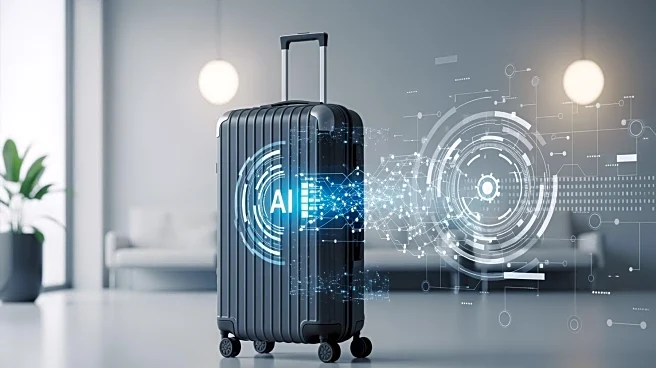What's Happening?
The corporate travel industry is increasingly adopting artificial intelligence (AI) technologies, with 75% of industry professionals acknowledging its use, as reported at the Business Travel Show America.
Despite this widespread adoption, successful implementation remains a significant challenge. Industry experts, including Keesup Choe, founder and CEO of PredictX, highlighted that 95% of corporate AI projects fail, according to a study by MIT. The panel discussion emphasized that achieving success with AI requires more than just adoption; it demands organizational commitment and strategic planning. Choe stressed the importance of buy-in from top management, as AI is not merely a tool but a skillset that necessitates continuous learning and exploration.
Why It's Important?
The integration of AI in corporate travel has the potential to revolutionize the industry by enhancing operational efficiency and improving traveler experiences. However, the high failure rate of AI projects underscores the need for strategic planning and management support. Successful AI implementation can lead to significant productivity gains and improved insights for travelers, as noted by Andres Fabris, co-founder and CEO of Traxo. The varied impact of AI across different stakeholders, including travelers, corporations, buyers, and suppliers, highlights the need for a tailored approach to AI adoption. Companies that effectively integrate AI into their operations stand to gain a competitive edge in the evolving travel industry landscape.
What's Next?
Looking forward, companies in the corporate travel sector must focus on strategic AI development to meet the demands of future travelers. Jennifer Steinke, director of travel, meetings, and fleet for Moderna, is developing an AI assistant named TAMI, designed to cater to future travelers who will not accept the current status quo. This forward-thinking approach underscores the need for continuous innovation and adaptation in AI strategies. Organizations must have a clear vision and understanding of how AI can support their strategic objectives, beginning with human insight and vision to guide AI integration.
Beyond the Headlines
The ethical and cultural implications of AI in corporate travel are significant. As AI technologies become more integrated into travel operations, issues such as data privacy, algorithmic bias, and the potential for job displacement must be addressed. Companies must navigate these challenges carefully to ensure that AI adoption benefits all stakeholders and aligns with ethical standards. The long-term success of AI in corporate travel will depend on the industry's ability to balance technological advancement with ethical considerations.










